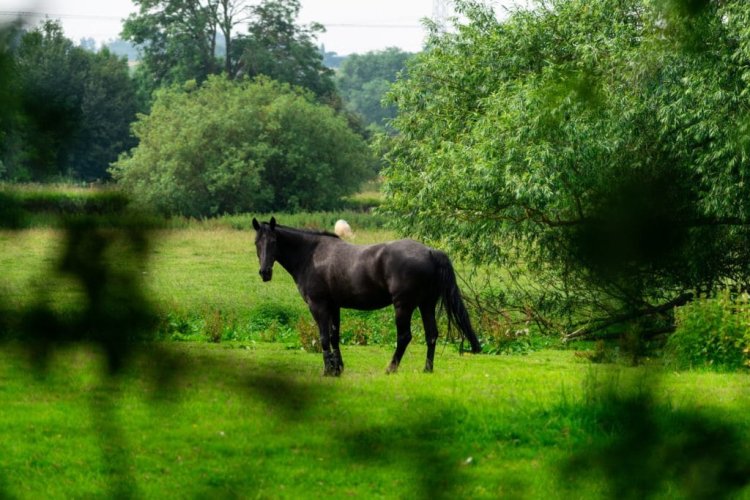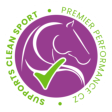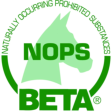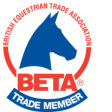in basket
TOP OFFER - SUMMER20 - 20% OFF* and 4 FREE seasonal products! *Excludes smaller pack sizes, treats, feed and mash.
Equine nutrition and colic

Colic in horses
Colic in horses is defined as abdominal pain that is usually caused by pain in the gastrointestinal tract but can also be due to pain from another abdominal organ. There are numerous types of intestinal issues that can cause similar symptoms that range from mild to severe, with some being life threatening. As such, colic is one of the most common causes of death in horses; however, there are more treatment options available now compared with many years ago and as such the prognosis for a horse with colic is much better now than in years gone by. There are many different issues that can cause colic in horses and, like us, horses are sensitive to pain in their gastrointestinal tract. Diet is a major cause of colic in horses and sudden changes in diet are known to result in horses being at a greater risk of developing colic.
The different types of colic are often referred to as spasmodic colic, impaction colic, twisted gut and sand colic. In spasmodic colic pain is generally due to a build up of gas in the horse’s gut due to excess fermentation and/or decreased motility in the gut. Impaction colic is when a blockage occurs in the gut and a twisted gut is where a section of the intestine twists upon itself, leading to an interruption in blood supply to that area.
Assessing if your horse has colic
If you suspect your horse has colic you must call your veterinarian as soon as you observe the first signs as early treatment of colic leads to better outcomes. Your vet will most likely tell you they would rather have a chat with you over the phone about an early colic rather than attending a more severe case of colic that they may have been able to help sooner. Signs of mild colic include flank watching, restlessness and pawing the ground. Your horse’s appetite may be decreased, and you may notice less droppings and/or a change in the consistency of the droppings; for example, they may be looser or firmer.
In moderate colic cases you may also see your horse stretching out hind legs like they are about to urinate, they may also be lying down and getting up and/or lying on their side for long periods. In more severe cases of colic your horse may demonstrate violent rolling, sweating and rapid breathing. Therefore, if you can record your horse’s vital signs, which include temperature, heart rate and respiratory rate that will be of great help to your veterinarian. It is also helpful to know what your horse’s normal vital signs are and keep a record of this to compare to. A horse’s average temperature is between 37.5 and 38.5oC and you can measure this by inserting a lubricated thermometer into your horse’s rectum. To take your horse’s respiratory rate you need to watch the movement of your horse’s rib cage, where an inhale and exhale counts as one breath. It is best to do this from a distance, to prevent your presence affecting your horse’s breathing, and record the number of breaths your horse takes over a period of one minute (or 30 seconds and multiply by two). The normal resting respiratory rate of an adult horse is 12 to 16 breaths per minute. You can obtain your horse’s heart rate (pulse) either by using a stethoscope just behind the horse’s elbow on the left-hand side. Or by locating the facial artery on your horse’s head, along the lower jaw bone. You can feel this by putting your fingers around the lower jaw bone and pressing the artery lightly against the bone to feel the pulse, it can take a bit of practice to feel it at first. A resting pulse rate should be between 28 to 44 beats per minute in a normal adult horse.
Waiting for your vet to arrive
If you suspect your horse has colic then the first thing to do is remove all forage and bucket feed from your horse. Access to water is very important so make sure your horse has fresh water available. Whether to walk your horse or not is a topic that everyone debates. Walking in-hand can help with gut motility but can also cause exhaustion and worsening of some non-gastrointestinal causes of colic such as tying-up. Many people walk their horse to prevent the horse from lying down, but most veterinarians will advise that it is ok to allow your horse to lie quietly in one position. Rolling, however, can cause injury to yourself and others as well as your horse and for that reason it can be better to keep a horse that wants to roll either standing or slowly walking.
Dietary management / prevention of colic
To help prevent colic occurring, the focus is on maintaining gut health. As discussed previously, horses are extremely sensitive to change and any sudden changes in diet and/or management can impact on gut health, which in turn increases the risk of colic. Therefore, any changes in diet and/or management should be gradual over a period of a few weeks where possible. Feeding should ideally mimic the pattern of a grazing animal i.e. an almost continuous feeding pattern. This minimizes fluctuations in the rate of delivery of digesta to the large intestine and ensures a more stable hindgut ecosystem.
Therefore, at this time of year, especially given the circumstances with Covid-19, it is highly likely that the feeding and management of many horses may change. For example, the wet weather in the UK has meant that many horses have been stabled more than they normally would be over the winter months and now that the weather has improved you may be turning your horse out for longer periods of time or even 24/7. This is a change in management and feeding as your horse will go from being stabled and fed forage to being at pasture and having access to grass. Whilst that is good for the horse’s welfare to have more turnout, it is advisable that this is built up gradually as a sudden change of this type can also increase the risk of colic.
If your horse needs to have a restricted diet; for example, if your horse is overweight and/or grass growth is such that access to pasture needs to be limited, then use small-holed haynets to increase eating time and reduce the time spent with no access to forage. Try to avoid feeds that are high in starch and if supplementary feeds are required then consider feeding high-quality fibre feeds, such as alfalfa and sugar beet pulp. When introducing a new type of feed or even when changing your forage source; for example, changing from haylage to hay or vice versa, do so gradually. This allows the microbes in your horse’s gut to adapt to the change and reduces the risk of any gastrointestinal disturbances.
Even with careful management of changes in diet, a horse’s gut is extremely sensitive to any change. To counter the effect that environmental factors can have on gut health, such as diet and management, it can be beneficial to incorporate a probiotic into your horse’s daily diet. There has been considerable research conducted on the benefits of yeast supplementation on gut health and digestion in horses, where the yeast appears to help maintain a stable microbial population even in times of change.
We recommend the use of our supplement GastroPremier to support your horse’s gut health.
It is not possible to eliminate the risk of your horse developing colic; however, some of the preventative approaches mentioned here may reduce the risk of your horse developing colic. Always consult your veterinarian for advice on colic-related issues and remember prompt diagnosis and treatment is essential to help avoid a mild colic becoming a potentially fatal colic.
Equine nutrition and colic summary
- Make any dietary changes gradually
- Ensure enough forage is provided to maintain gut health
- Feed fibre first and then add on any additional feedstuffs only where required
- If high-starch concentrate feeds are required, then feed little and often in small meals
- Consider the use of supplements such as our GastroPremier that can help maintain gut health
Article written for Premier Performance by Professor Jo-Anne Murray.







